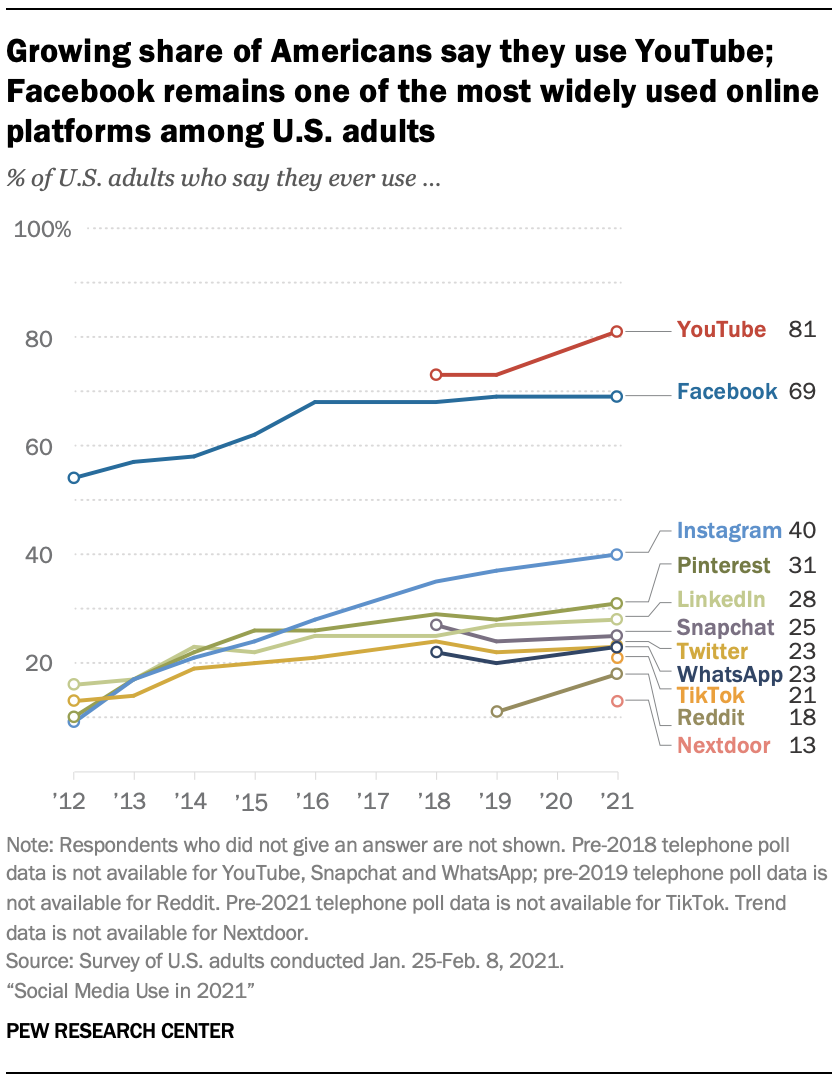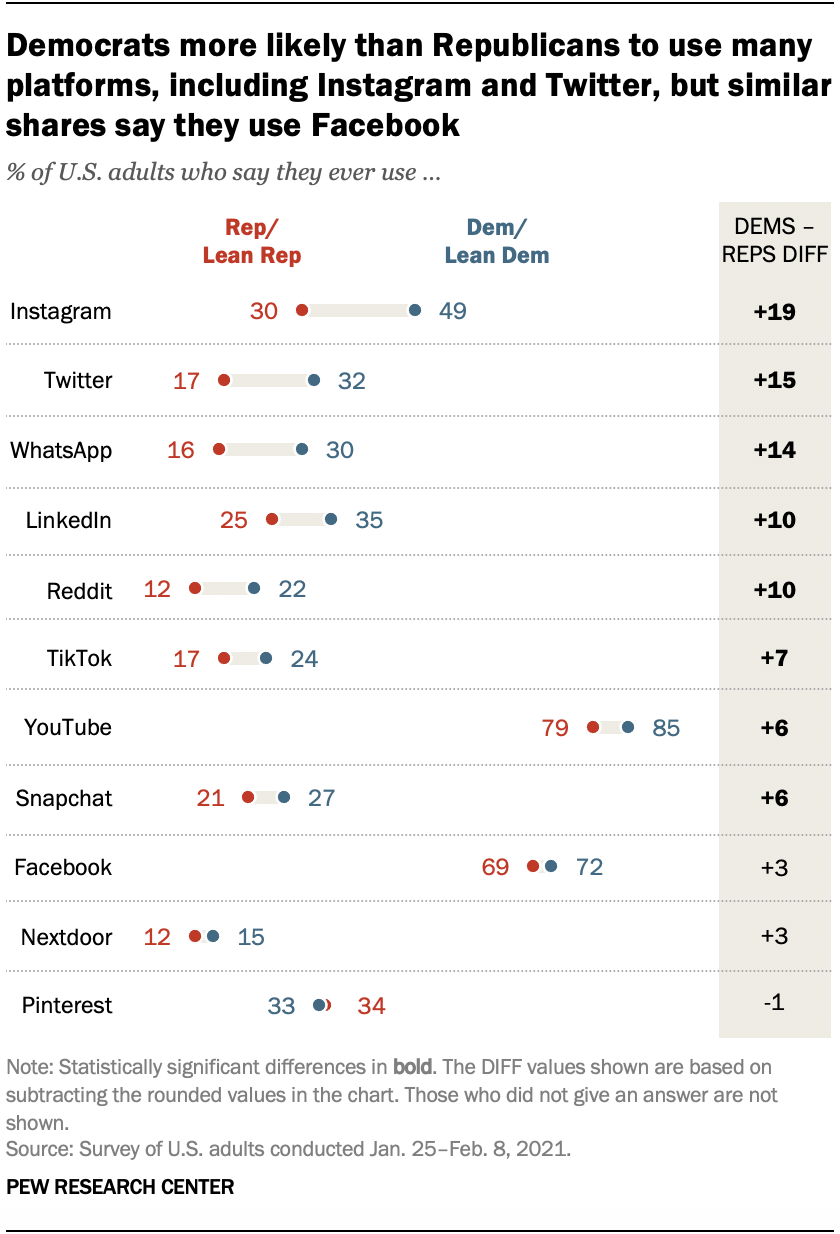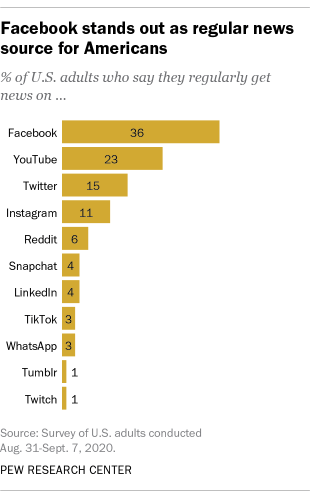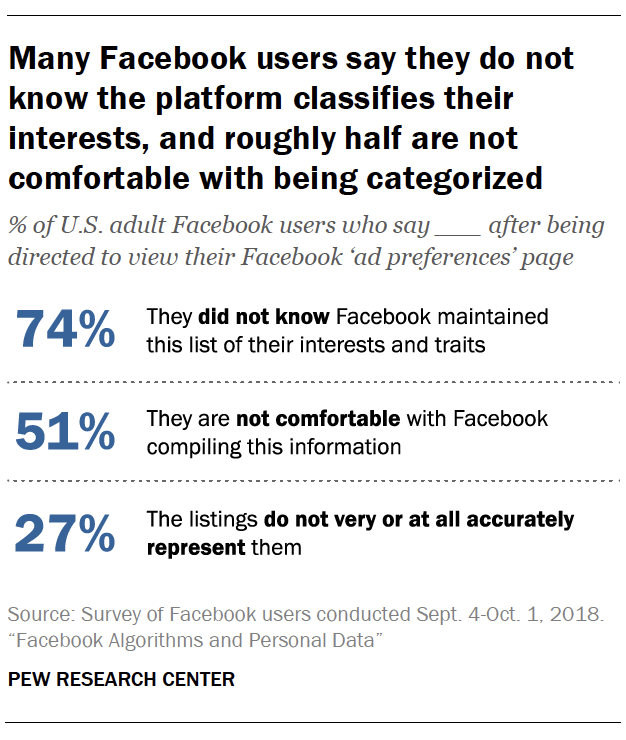How Many Reports to Suspend a Facebook Account
Facebook, the social media giant that was founded in 2004 and now boasts more than 2.8 billion monthly users worldwide, is a regular focus of scrutiny in the United States and abroad.
Some lawmakers in the U.S. have argued that the platform is too powerful and should be broken up, and in late 2020 the federal government and 46 states (as well as the District of Columbia and Guam) sued the company for alleged antitrust violations. Facebook's decision to suspend the account of former President Donald Trump in early 2021 has fueled additional debate. Many Republicans have accused the platform and other social media sites of censoring conservative viewpoints, even as many Democrats in Congress urge it to do more to address misinformation, hate speech and content that could incite violence.
Here are 10 facts about Americans and Facebook, based on Pew Research Center surveys in recent years.
Social media, and Facebook in particular, have become ubiquitous in American life. This analysis uses data from several Pew Research Center surveys to provide insights into who uses Facebook and their experiences with the platform.
All of the polls referenced here – including each survey's mode, field dates and sample size – are available through the links in this analysis.
Around seven-in-ten U.S. adults (69%) say they ever use Facebook, according to an early 2021 phone survey. There has been no statistically significant change in the share of adults who use the platform since 2016.

With the exception of YouTube – the video-sharing site used by 81% of adults – no other major online platform comes close to Facebook in terms of usage. Four-in-ten adults report using Instagram, while around three-in-ten use Pinterest (31%) and LinkedIn (28%). A quarter of adults or fewer use Snapchat, Twitter, WhatsApp, TikTok, Reddit and Nextdoor. Facebook owns Instagram and WhatsApp.
Among U.S. adults who use Facebook, seven-in-ten say they visit the site daily, including around half (49%) who do so several times a day. By comparison, 59% of both Snapchat and Instagram users say they visit these platforms at least daily, as do 54% of YouTube users and 46% of Twitter users.
Facebook is broadly popular among all demographic groups, though some adults are more likely to use it than others. Around three-quarters of U.S. women (77%) use the platform, compared with 61% of men. There are differences by education level, too: About three-quarters (73%) of adults with a college degree or more use Facebook, compared with 64% of those who have a high school diploma or less.
Americans ages 65 and older are the least likely age group to use Facebook, with half saying they do so. But that still represents a 30 percentage point increase since August 2012, when just 20% reported using it.

There are partisan differences in the use of many social media platforms, but not Facebook. Around seven-in-ten Democrats and Democratic-leaning independents (72%) use Facebook, as do 69% of Republicans and GOP leaners. Democrats are considerably more likely than Republicans to use many other social media platforms, especially Instagram (49% vs. 30%), Twitter (32% vs. 17%) and WhatsApp (30% vs. 16%).
As of 2018, Facebook was used by around half of America's teens, but it no longer dominated the teen social media landscape as it once did, according to a survey of U.S. teens in March and April that year. At the time, 51% of those ages 13 to 17 said they use Facebook, down from 71% in a 2014-2015 survey.
The top social media sites among teens in 2018 included YouTube (used by 85% of teens), Instagram (72%) and Snapchat (69%). In the 2014-2015 survey, Facebook was the only platform used by a clear majority of teens.
Teens in lower-income households are more likely than those in higher-income households to use Facebook, according to the spring 2018 survey. Seven-in-ten teens living in households earning less than $30,000 a year said they use Facebook, compared with 36% of those whose annual family income was $75,000 or more. For other social media platforms, use among teens did not vary much by demographic factors.

About a third of U.S. adults (36%) say they regularly get news from Facebook, according to a survey in August and September 2020. The share of U.S. adults who get news through Facebook is higher than the shares who regularly get news through YouTube (23%), Twitter (15%), Instagram (11%) and other platforms.
Among adults who get news from Facebook, women are much more likely to do so than men (63% vs. 35%), as are White Americans (60%) when compared with those who are Hispanic (18%), Black (13%) or Asian (5%).
Far more Americans distrust than trust Facebook as a source for political and election news, according to a survey in October and November 2019. Around six-in-ten adults (59%) said they distrust the platform as a place to get this kind of news, while only 15% said they trust it. Another 19% said they neither trust nor distrust it. Democrats and Republicans alike were much more likely to distrust than trust Facebook for political and election news.
As of late 2018, around three-quarters of Facebook users were not aware that the site lists their traits and interests for advertisers. Facebook allows its users to find out how the site's algorithm has categorized their personal traits and interests for advertisers: This information can be accessed via the platform's "ad preferences" page. But 74% of adult Facebook users in the U.S. were not aware that the site collects this information about them until they were directed to this page, a Pew Research Center study conducted in September and October 2018 found.

The fact that the company maintains a list of users' traits and interests makes many users uncomfortable. Once directed to their ad preferences page, around half of adult Facebook users (51%) said they were not comfortable with Facebook maintaining this kind of list, according to the same 2018 study. And while a majority of users (59%) said the categories produced by Facebook reflected their real-life interests, around a quarter (27%) said these classifications were not very or not at all accurate.
Note: This is an update of a post originally published on April 10, 2018.
How Many Reports to Suspend a Facebook Account
Source: https://www.pewresearch.org/fact-tank/2021/06/01/facts-about-americans-and-facebook/
0 Response to "How Many Reports to Suspend a Facebook Account"
Post a Comment